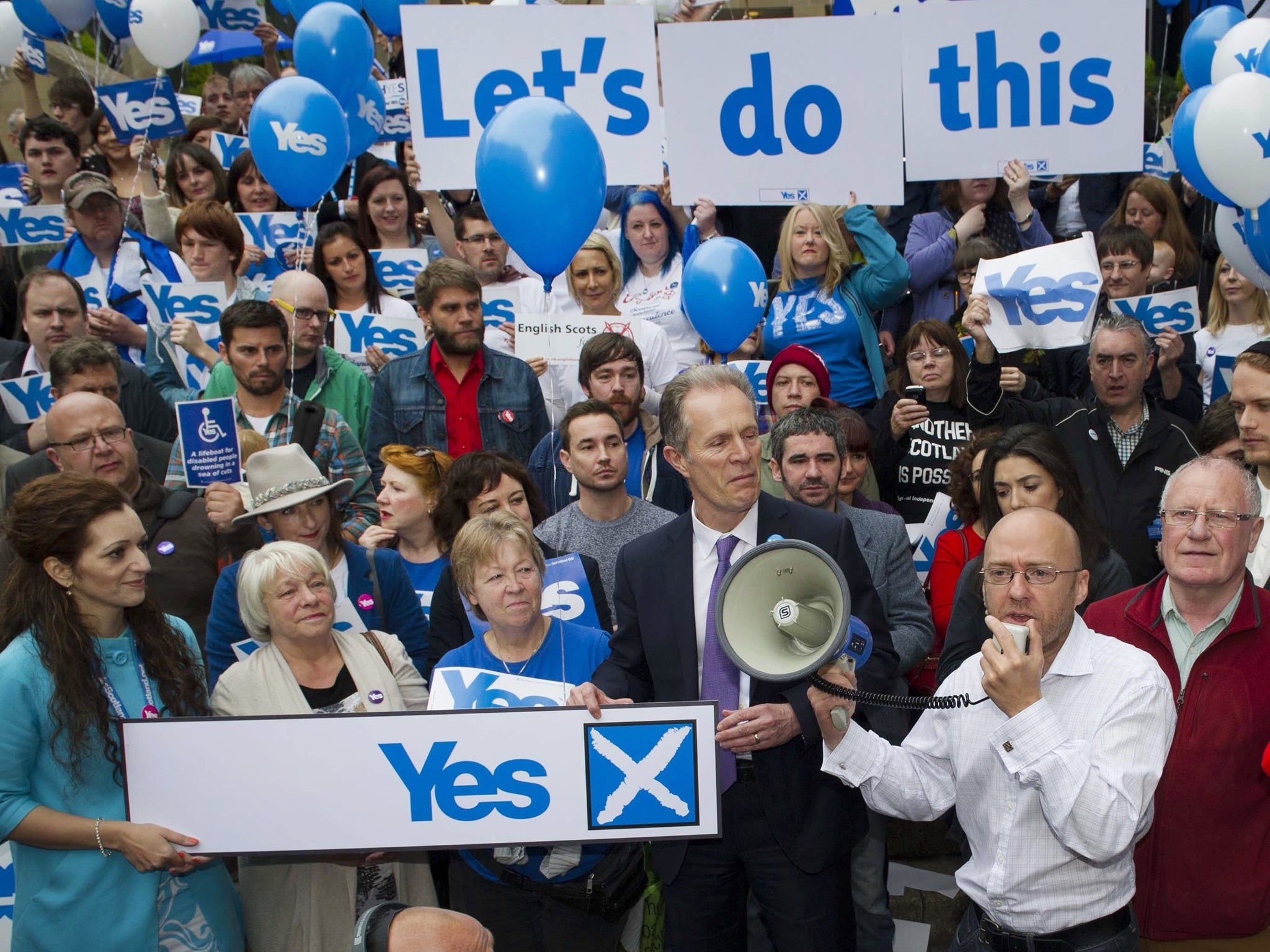Scottish independence: Final opinion polls show undecided voters could swing result either way
After a referendum campaign of claim and counter-claim which has lasted for more than two years and has led to allegations of bullying, intimidation, scaremongering and outright lies, Scottish voters will finally decide whether their country should embrace independence or remain as part of the United Kingdom from the privacy of the polling booth.
The final opinion polls before the vote suggested that the campaign against independence retained a very slight lead. But with significant numbers of people still undecided, the result will remain impossible to predict until the early hours of Friday morning.
David Cameron admitted he was “nervous” that the UK may be on the verge of breaking up. In the event of a Yes vote, he will face intense pressure from Conservative backbenchers to resign as Prime Minister, having presided over the separation of England’s 307-year-old union with Scotland.
Mr Cameron insisted that he would not stand down if Scotland voted for independence. “My name is not on the ballot paper. What’s on the ballot paper is, does Scotland want to stay in the United Kingdom or does Scotland want to separate itself from the United Kingdom,” he said.
“That’s the only question that will be decided on Thursday night. The question about my future will come at the British general election coming soon.”
In Perth, Alex Salmond gave a rousing speech to Yes campaigners, telling them to prepare for “a day which Scotland will never forget” and hitting out again at the main Westminster political parties, which he described as “out of touch and out of time”.
The First Minister added: “To our friends in the rest of the United Kingdom, I say this: we don’t seek division, but rather equality. A new, better and harmonious relationship founded on our enduring bonds of family and culture.”
In Glasgow, Gordon Brown delivered what some commentators described as the best speech of his political career, telling an audience in Maryhill: “It is not less patriotic to vote No – Scotland does not belong to the SNP”.
Declaring that “the silent majority will be silent no more”, the former Labour prime minister added: “This vote isn’t about a Scottish parliament – we have that. It isn’t about a shared currency – we have that already. The nationalists' aim is to break every constitutional link with the UK – and we will not have that. We are a nation, yesterday, today and tomorrow.”
An Ipsos-MORI poll tonight suggested that Scotland would reject independence by the smallest of margins, with 51 per cent of people intending to vote No and 49 per cent Yes, excluding undecided voters.
A separate Panelbase survey had very similar findings, with 52 per cent saying they favoured keeping the union and 48 per cent keen to go it alone. Both polls suggested that about five per cent of voters – or one in 20 – remain undecided and could swing the result.
In a YouGov poll for The Times, as little as four per cent didn't know which way they would vote – around 170,000 of those who have registered.
Blair Jenkins, the chief executive of Yes Scotland, said the polls demonstrated that the campaign for independence was within “touching distance” of victory, adding that he believed the expected record voter turnout would favour his side.
The aggressive tactics of some Yes supporters came in for further criticism, with a succession of politicians suggesting that the tone of the debate had not reflected well on Scotland. Nick Clegg, the Deputy Prime Minister, said the campaign had seen some “pretty nasty incidents”, while Ukip leader Nigel Farage accused Mr Salmond of fuelling “vitriol” on the streets.

“We are now seeing intimidation and a growing anti-English sentiment,” he wrote on Twitter. “We are also seeing the sort of abhorrent behaviour that could lead to rioting. It's a sorry situation when politics plunges to these depths.”
Lord McConnell, the country’s former First Minister, said police should be blamed for a “shocking” lack of effort at preventing intimidation on the campaign trail. “The level of shouting-down at public meetings, people’s cars and houses being threatened and aggression in town centres and public places was preventable,” he said.
“I’m shocked that there hasn’t been more of a conscious effort by Police Scotland. More presence at the weekends, at public meets and one or two symbolic arrests of people would have set the right tone early on.”
Meanwhile, Mr Salmond’s claims that an independent Scotland would be rapidly admitted to the European Union were flatly contradicted by the Spanish Prime Minister.
Mariano Rajoy claimed it could take up to eight years for Scotland to go through the process of applying for membership of the EU, claiming that breaking away from the rest of the UK would represent a “torpedo in the waterline of the European Union”.
Mr Salmond has previously insisted that an independent Scotland would be welcomed into the bloc, an assertion he repeated today, saying it held a “huge amount of attractiveness” due to its oil reserves and other natural resources.
Join our commenting forum
Join thought-provoking conversations, follow other Independent readers and see their replies
Comments